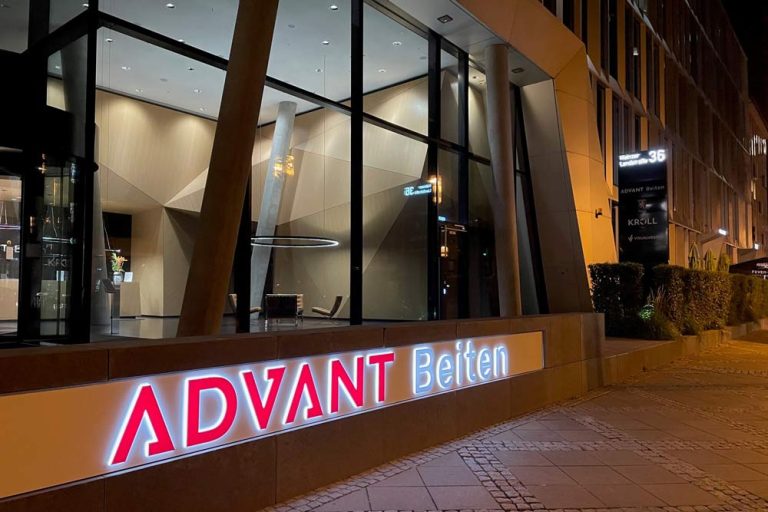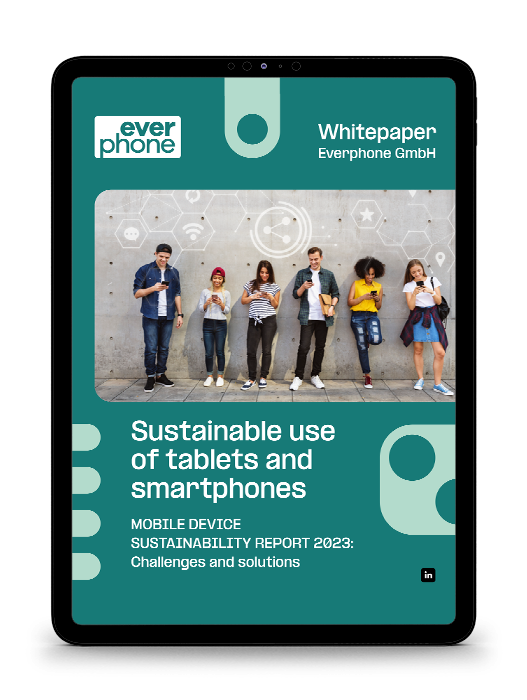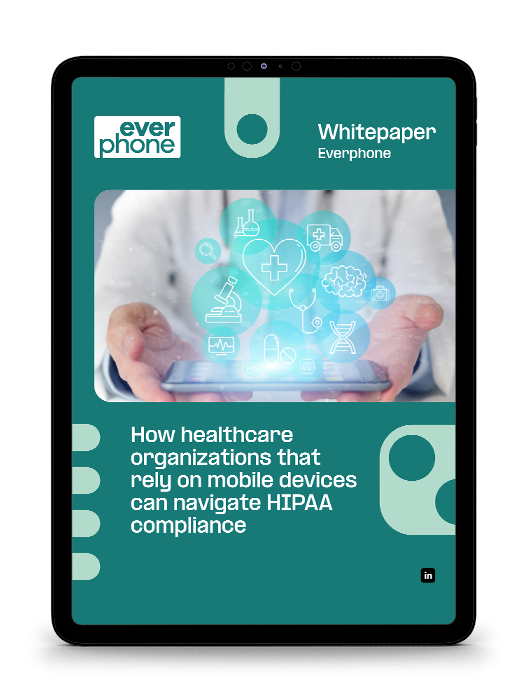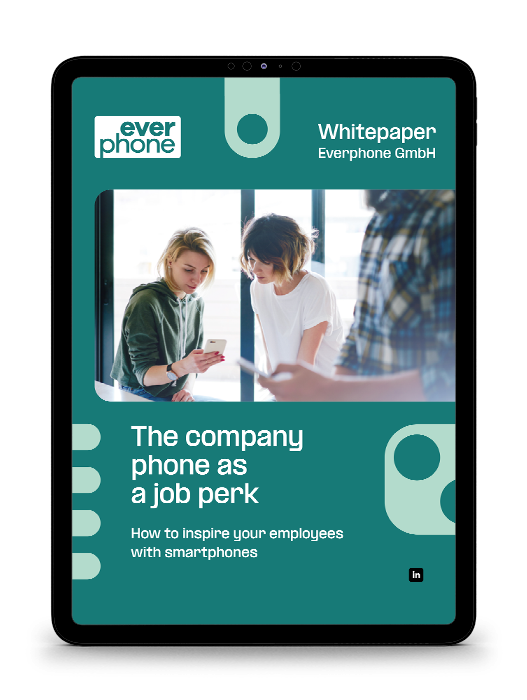iPad leasing: A tempting entry
Leasing iPads is often touted as a cost-efficient solution. “You only pay 80 percent of the purchase price,” is the common promise of many leasing providers. But is it really that simple?
One of the biggest disadvantages of iPad leasing are the hidden costs. These include, for example:
- Fees for the so-called collection phases,
- Bundling of many devices on the leasing certificates and resulting installment payments,
- Costs for iPad repairs in case of expected wear and tear (for example, iPad glass, iPad battery, or charging port),
- Extra costs for additional “managed services” (for example, certified deletion of data on returned leasing iPads, recycling),
- Costs for using the asset management software of the leasing provider, or the
- Costs for device insurance.
We have detailed the reasons in relation to smartphones here: https://backend.everphone.com/en/blog/smartphone-leasing-costs/
You can seamlessly transfer them to iPad leasing as well.
One more thing: In terms of security (mobile device management and mobile threat defense, for example also antivirus software for the iPad), you can expect some more issues as well.
iPads: Leasing vs. buying vs. renting
As an alternative to iPad leasing, companies can also consider purchasing or renting iPads. In particular, renting offers similar benefits to leasing, but avoids some of its most significant disadvantages. More on this shortly. Let’s first compare iPad leasing with the traditional purchase of iPads.
Apple iPad leasing: The advantages
Instead of making a large initial investment for the purchase of devices, leasing allows for the distribution of costs over a longer period. This can be particularly advantageous for fast-growing companies, companies with limited budgets, or for start-ups—as renting is scalable, preserves liquidity, and facilitates financial planning. Depending on the size of the mobile device fleet and the location of the company, tax aspects may also become relevant (keyword: capex-to-opex shift).
By leasing iPads, companies have access to the latest models without having to commit to a device long-term. This is especially important in an industry where technological developments are progressing rapidly. Thus, companies can ensure that their employees are equipped with modern technology.

What about scalability?
Leasing contracts often offer more flexibility than purchase agreements. Companies can increase the number of leased iPads as needed, which is particularly beneficial for rapidly growing companies. This flexibility allows them to respond quickly and efficiently to changes in business operations.
However, it’s not as easy in the other direction—if a company needs to downsize due to economic conditions, the leasing fleet doesn’t simply shrink with it. The contracts continue or can only be terminated early with installment payments.
Extra service at extra cost for leasing iPads
Leasing iPads can also simplify management and maintenance. Many leasing providers offer comprehensive service packages that include repairs, replacement devices, and technical support. This relieves the internal IT department and ensures that the devices are always functional and up-to-date. However, additional costs are incurred for this, as mentioned above.
iPad leasing: The disadvantages
While leasing iPads has its advantages, there are also several disadvantages that companies should consider. These aspects can be particularly relevant when it comes to long-term financial commitments, cost transparency, service levels, and flexibility in the use of technology.

Long-term costs
One of the main disadvantages of iPad leasing is the long-term costs. Although the monthly rates may appear lower than the immediate purchase price, the TCO (total costs of ownership) over the duration of the lease can be substantial. In the long run, leasing can be more expensive than purchasing—especially, if the company plans to use the devices over an extended period.
In general, it is fundamentally difficult to make the costs of iPad leasing transparent, as potential additional costs—such as for repairs—are not easily predictable or are hidden in the fine print of the lease agreements.

Administrative effort
Managing lease agreements can be complex and time-consuming, especially when it comes to returning or exchanging devices. The administrative effort and potential issues during return can bring unexpected costs and organizational challenges.
Incident management
In the event of an incident (damage due to a fall, water damage, wear of consumable parts like the charging port, etc), the operational and financial effort for repair or device exchange falls entirely on your side. This is perhaps the biggest disadvantage of leasing constructions for iPads and other mobile devices.

Therefore, assess the expected administrative effort as best as possible beforehand—these are important considerations for companies thinking about this financing option. It is crucial that your company takes into account its specific needs and long-term plans when making a decision.
The alternative: Rent iPads (iPad-as-a-service)
In today’s dynamic business world, companies are looking for flexible and cost-efficient ways to equip their employees with the latest technology. Renting iPads represents such an alternative, which can offer significant advantages over buying or leasing.
Renting instead of leasing: financial flexibility
Unlike purchasing or leasing, renting iPads does not require long-term financial commitments. Companies only pay for the duration of actual use, which allows for better budget control.
Technologically up-to-date
By renting, companies always have access to the latest iPad models. As soon as a new version is available, the rented devices can be exchanged (“upgraded”). This ensures that the company remains up-to-date with technology without having to worry about reselling or disposing of old devices.
Reduced administrative effort
Renting iPads “as-a-service” significantly simplifies the administrative and maintenance process. For instance, at Everphone, comprehensive service packages that include maintenance, support, and even replacement devices in case of a defect are already included in the rental price. This relieves the internal IT department, reduces the time spent on device management, and finally ensures complete cost transparency in device usage.
Adaptability to business needs/need-based equipment
Rental models offer high flexibility in terms of the number of devices and rental duration. Companies can increase or decrease the number of iPads as needed, which is particularly useful for responding to seasonal fluctuations or company growth.
Renting iPads thus offers maximum flexibility and a cost-efficient alternative for companies that want to equip their employees with iPads.
A very high service level and consistent user orientation will significantly increase the quality of service. Both the affected employees as well as the IT team, which is sustainably relieved of these tasks, will appreciate this. Therefore, renting iPads is an attractive solution for many business situations.


























